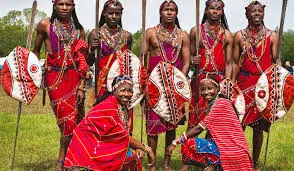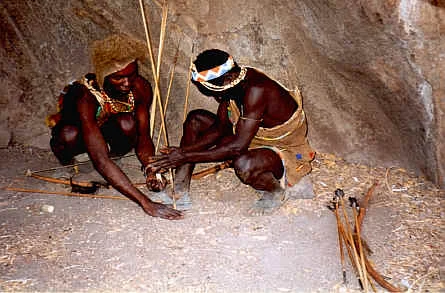- +255 789 724 818
- info@serengetiwildlifesafaris.com
- Mega Complex F4, Arusha, Tanzania.
A Deep Dive into Cultural Norms
Understanding the social fabric of East Africa's cultural gem
Tanzanian society maintains distinct expectations across genders, particularly in rural and traditional settings. Gender roles are influenced by history, religion, and local customs, and while urban areas are more relaxed, traditional values remain strong in many communities.
Women are often responsible for household duties, child-rearing, and in some cultures, even building homes. However, women are increasingly visible in business, politics, and education.
Men are often seen as heads of households and are expected to provide for their families. In rural areas, men may be responsible for herding, farming, or fishing.
"In Masai culture, women traditionally build homes while men herd cattle—a division of labor that persists in rural areas."
Explore the vibrant visual culture of Tanzania through these images showcasing traditional attire, ceremonies, and daily life.

Maasai men in traditional shuka cloth and elaborate beadwork, performing a traditional dance.

A vibrant market scene showing the colorful fabrics and fresh produce available in Tanzanian markets.

A bride and groom in traditional wedding attire during a cultural marriage ceremony.

Members of the Hadzabe tribe engaging in traditional hunting and gathering — one of Africa’s last hunter-gatherer communities.

Performers in traditional costumes showcasing one of Tanzania's many ethnic dance forms.

Women preparing traditional Tanzanian dishes using age-old methods and local ingredients.
Religion is deeply woven into the fabric of Tanzanian life, influencing daily routines, holidays, and social interactions. The country is religiously diverse, with Islam, Christianity, and indigenous beliefs all playing significant roles. Respect for religious customs is expected, especially during holy periods such as Ramadan or Easter.
| Practice | Muslim Communities | Christian Communities |
|---|---|---|
| Alcohol | Frowned upon | Frowned upon |
| Dress Code | Headscarves common | Modest Western attire |
| Greetings | "Salaam aleikum" | "Shikamoo" for elders |
Visitors should be mindful of prayer times, dietary restrictions, and religious holidays. Greeting people with appropriate phrases (e.g., "Salaam aleikum" for Muslims, "Shikamoo" for elders) is a sign of respect.
Respect for elders and authority is a cornerstone of Tanzanian culture. Social hierarchy is observed in greetings, seating arrangements, and decision-making. Disrespecting elders or community leaders is considered a serious offense.
The word "Mzee" (respected elder) originates from "mzeeka" meaning "one who has seen many seasons." Elders are consulted for advice and are central to conflict resolution and community decisions.
Swahili greetings are elaborate and important, often involving several exchanges before moving to the main topic. Direct eye contact is valued, but too much can be seen as disrespectful to elders. Tone and politeness are highly regarded in conversation. Humor and proverbs are commonly used to convey messages indirectly.
It is polite to ask about one's family and health before discussing business. Interrupting or raising your voice is considered rude.
Extended families are common, and community ties are strong. Decisions are often made collectively, and elders play a key role in guidance and conflict resolution. Children are raised by the whole community, and family gatherings are frequent and important.
Respect for parents and elders is taught from a young age. Family obligations often take precedence over individual desires, and helping relatives is expected.
Traditional music, dance, and storytelling are integral to Tanzanian culture. Ceremonies such as weddings, funerals, and coming-of-age rituals are celebrated with vibrant attire, communal feasts, and rhythmic drumming. Each ethnic group has its own unique dances and songs.
Storytelling is a respected art, used to pass down history, morals, and wisdom. Festivals and market days are lively occasions for sharing culture and building community.
Pointing with the left hand, discussing politics openly, and public displays of anger are generally frowned upon. Certain foods and behaviors may be taboo in specific regions or tribes. For example, pork is avoided in Muslim communities, and some tribes avoid eating fish.
It is also taboo to refuse food offered by a host, to step over someone sitting on the ground, or to whistle at night (believed to attract evil spirits in some areas).
Knee-length shorts/skirts, long pants, and tops with sleeves
Small notebook for learning basics like greetings and thank you
School supplies for village visits or small tokens for hosts
"Mwenye pupa hadiriki kula tamu"

Mega Complex F4,
Arusha, Tanzania.
Useful Links
Get Updated
Subscribe to our website today and gain exclusive access to timely updates, industry insights, and valuable information about our services.
Copyrights @ Serengeti Wildlife Safaris by Pro DesignTZ. All rights reserved.
Chat with Us